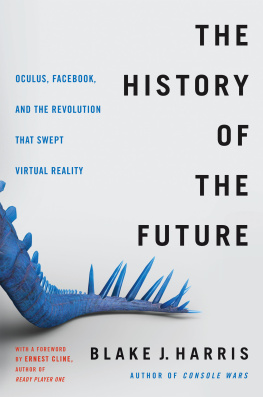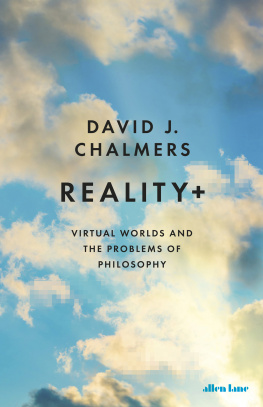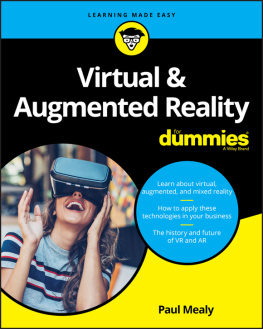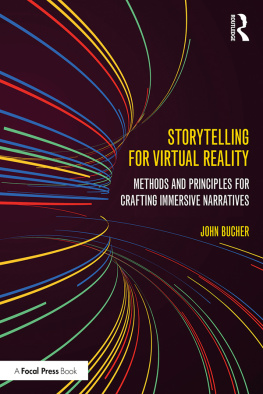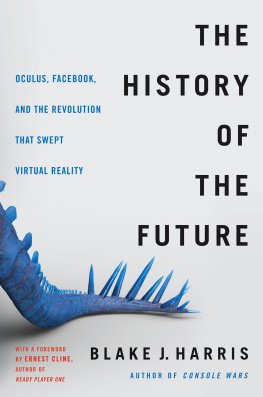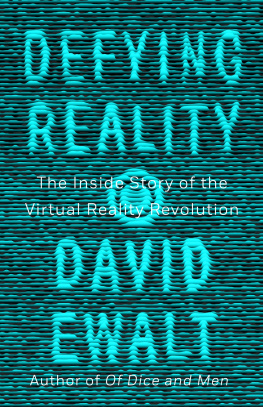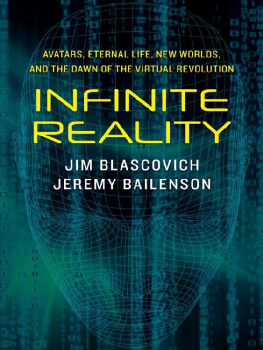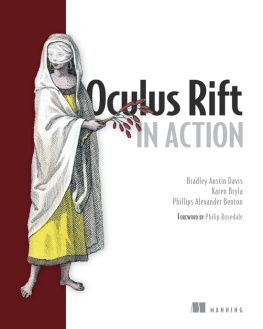I WAS BORN IN MARCH OF 1972. IT WAS A PERFECT TIME TO BE BORN A GEEK, because the geeks were about to inherit the earth.
I dont think I actually realized I was a geek until May of 1977, which was when the very first Star Wars film was released. I was five years old, and when I saw it for the first time I nearly lost my mind. I was suddenly unable to talk or think about anything other than Star Wars. It became my first obsession. Star Wars was the very first thing that I ever geeked out over. But it definitely wouldnt be the last.
The following year, I received an Atari 2600 for Christmas and yet another obsession was born. To me, those Atari cartridges in the old shoebox beside our TV were more than just games. They were computer simulations. They allowed me to simulate driving a tank or piloting a starship through an asteroid field. One of these gamesAdventureeven allowed me to take control of an avatar inside a virtual world. I could navigate its labyrinths, pick up items, slay dragons, storm castles, and search for hidden treasure. Sure, my avatar was just a square, and the virtual world was rendered with blocky two-dimensional graphics on my TV screen. But to me, that computer-generated kingdom seemed like a real place. Playing the game was like being transported to another reality, without ever leaving my living room.
I didnt realize it then, but Id just become part of the first generation of human beings to have the ability to play video games at home. And a few years later, when I received a TRS-80 Color Computer for my birthday, I became part of the first generation to have home computers, too. Around the same time, my family bought our first VCR, another newly affordable invention that would drastically alter the course of my life.
A few years later, in junior high, I discovered another early form of virtual reality when I began to play fantasy role-playing games like Dungeons and Dragons with my friends. These games allowed players to simulate other worlds using the most powerful computer in existencethe human brain. Using paper, pencils, a few rulebooks, and some polyhedral dice, you could create an entirely new reality, which existed only inside the collective imaginations of you and your fellow players. D&D allowed me to experience a crude (but still totally immersive) form of virtual reality long before there were computers capable of generating one.
I didnt get my first taste of real virtual reality until the early 90s, when I attended Gen Con, one of the worlds largest gaming conventions. I waited in line for over an hour to play a new kind of game called Dactyl Nightmare, on a stand-up Virtuality 1000CS machine. The VR helmet was bulky, the controller was awkward, and the blocky polygon graphics did a poor job of simulating reality. But I still remember being blown away by that brief experience, because of the vast potential the technology showed. Even in this early primitive form, putting on a virtual reality headset felt like being transported into another worlda digital reality where you could interact with other real people, through their game avatar. It was amazing! Once the headsets got smaller and the computer graphics got better, virtual reality was going to change the world by creating a completely new one. It seemed inevitable.
In 1992, a film called The Lawnmower Man was released and it began to play on a seemingly endless loop on HBO and Cinemax. It had a ludicrous story line, but the movies depiction of virtual realitys future potential stoked my anticipation for this evolving technology even further. So did Neal Stephensons novel Snow Crash, which was published the same year. I was completely floored by Stephensons stark vision of a sprawling virtual world called the Metaverse that millions of real people around the world were able to access with a pair of VR goggles. Snow Crash built upon the concept of cyberspace that William Gibson had introduced in his 1984 novel, Neuromancer, by extrapolating VR technology even further. With a programmers eye for detail, Stephenson laid out how a persistent globally networked virtual reality like the Metaverse might function. He described its evolution and architecture, along with its culture, laws, and ecology. He also hinted at the potential social and economic side effects of living a dual life, split between the real world and a virtual one.
Reading Snow Crash left my mind reeling with the implications of our virtual future. It also convinced me that the immersive VR technology depicted in the novel was probably only a few years away from becoming a reality.
But it wasnt. Aside from a few false starts and failed prototypes, virtual reality would continue to languish in an unrealized limbo, just beyond our collective reach, while the final decade of the twentieth century gave rise to a different form of world-altering technology insteadthe internet.
I got my first job in the computer industry in 1995, working as a technical support representative for CompuServe in Columbus, Ohio. I spent my days there helping people learn how to access and use the fledgling World Wide Web, and over the next five years, I watched as the internet rapidly evolved from something that most people had never even heard of into a service that nearly everyone was using, every single day, for just about everything. In the blink of an eye, the internet changed nearly every aspect of human civilization and how it functioned. It erased our borders and gave rise to a new digital countryone where the members of humanity all around the world were now connected to one another, every second of every day.
During this time, video games and computer graphics also continued to evolve and improve at an astonishing rate. In 1997, the very first massively multiplayer online role-playing game, Ultima Online, was launched. It was soon followed by other MMORPGs like EverQuestand World of Warcraft. These online games represented the very first persistent virtual reality simulations, which were populated by hundreds of thousands of real people who accessed them from different countries all over the globe. Players began to live alternate lives through their game avatars, even though they could only see the digital world they inhabited through the two-dimensional window of their computer monitor. For a lot of people, even this early crude form of virtual reality already seemed more compelling than the real world.
In several of the call centers and IT companies where I worked during this time, I recall seeing dozens of my coworkers bring a laptop with them to the office every day, so that they could play World of Warcraft from their cubicles while taking nonstop tech support calls. Even more astounding was when I learned that MMORPG players had started to sell swords, armor, and other virtual magic items on eBay for real money. These were objects that didnt actually existthey were nothing but a collection of ones and zeroes on a game server somewhere. But these virtual items still had value in the real world, because real people spent real hours of their lives inside the games virtual reality, and so everything that went on in there was still important to them. If a magic sword made it easier to defeat your virtual enemies or impress your virtual friends, then people were willing to pay real money for it. For the first time in history, people were suddenly able to earn a living in the real world by buying and selling goods in a virtual one.

